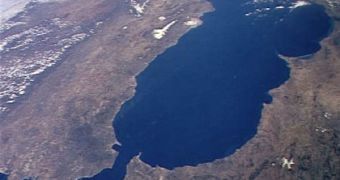The situation of the Mediterranean Sea is such that it can be construed into a model of what could happen to the world's oceans soon, if actions to mitigate the effects of climate change and global warming are not taken. At this point, the sea is undergoing a large number of changes, including variations in its ecosystems, food webs, trophic chains, acidity levels, temperatures, and so on, all of them caused by human activities, experts say, quoted by Wired.
Over the years, scientists have continuously drawn attention to the fact that increasing amounts of pollution make their way into the sea annually, but the will to stop these phenomena is lacking at the highest levels, therefore no actions have been taken. Overfishing is another serious problem in the sea, regardless of the fact that, in this field, European regulations are set in place to prevent poaching. Still, small fishermen's boats cause a lot of damage to endangered and nearly extinct fish species. It could be argued that the Mediterranean Sea is now just a shadow of its former self, investigators believe.
“The predicted effects of climate change are being met in the Mediterranean. The results are more obvious and dramatic, but the drivers are the same all over the world,” University of the Mediterranean biologist Pierre Chevaldonne explains. Food webs are constantly shrinking, the expert adds, saying that some of the most well established ecosystems, which in the past yielded high fish catches, are currently being left barren by human activities. Jellyfish and tiny invertebrates – that are of little to no commercial value – are rushing in to fill the niches left behind by dwindling fish species.
In the Monday issue of the respected scientific journal Trends in Ecology and Evolution, the expert publishes a review of more than 100 scientific studies, all of which focus on the changing ecological dynamics of the Mediterranean Sea. One of the main problems posed to the body of water, he says, is the fact that more than 132 million people are currently living crammed up on the rim of the Mediterranean, increasing habitat alterations, pollution and fishing pressure. The shallow northwestern waters, for example, warmed up by more than 1.8 degrees Fahrenheit between 1950 and 2000.
“In the future, we may get only jellyfish. Then we’ll find a way of consuming jellyfish. The problem is, do we want that? It’s difficult to know exactly what’s going to happen elsewhere, but the principles can be extrapolated,” Dalhousie University marine biologist Marta Coll says.

 14 DAY TRIAL //
14 DAY TRIAL //